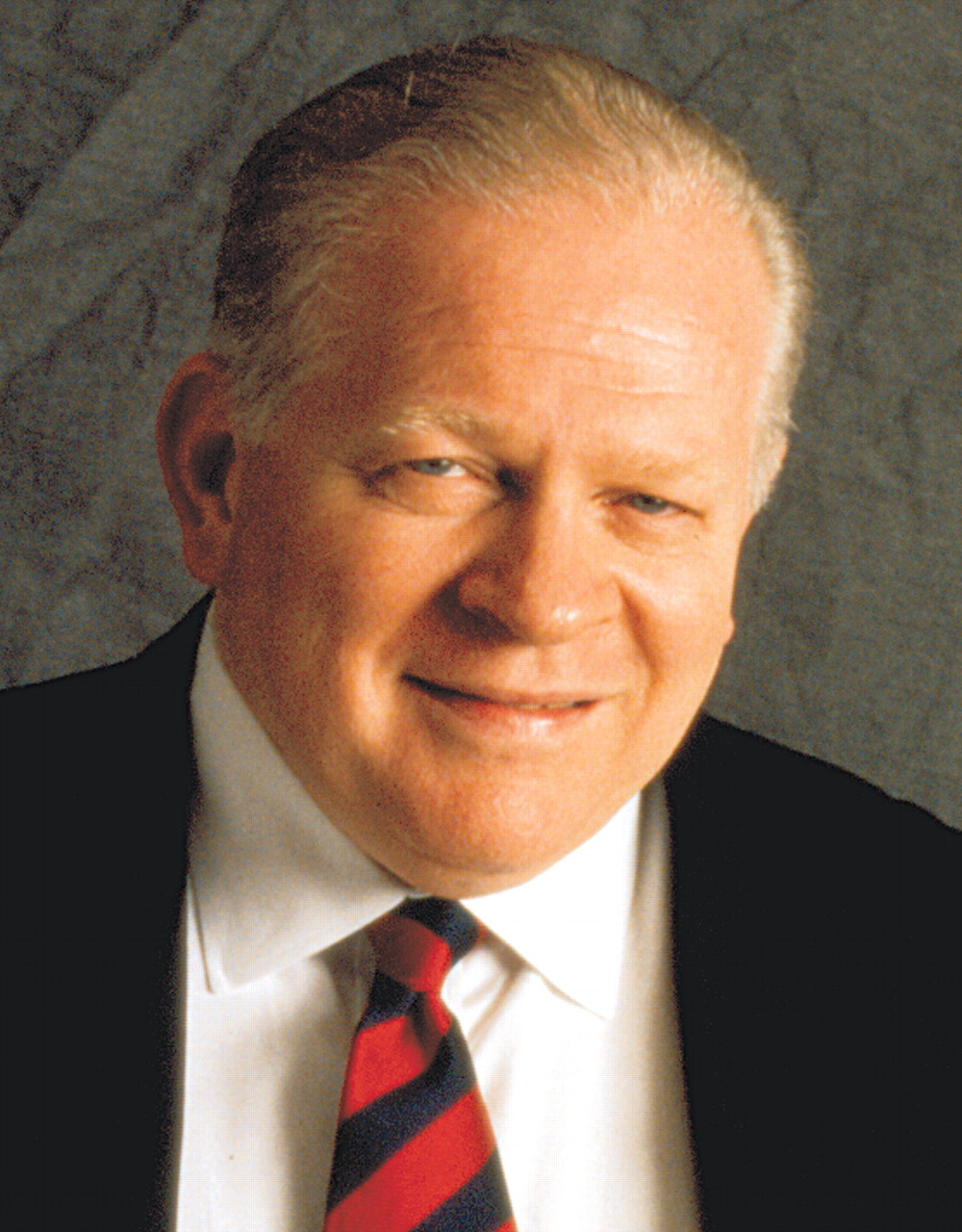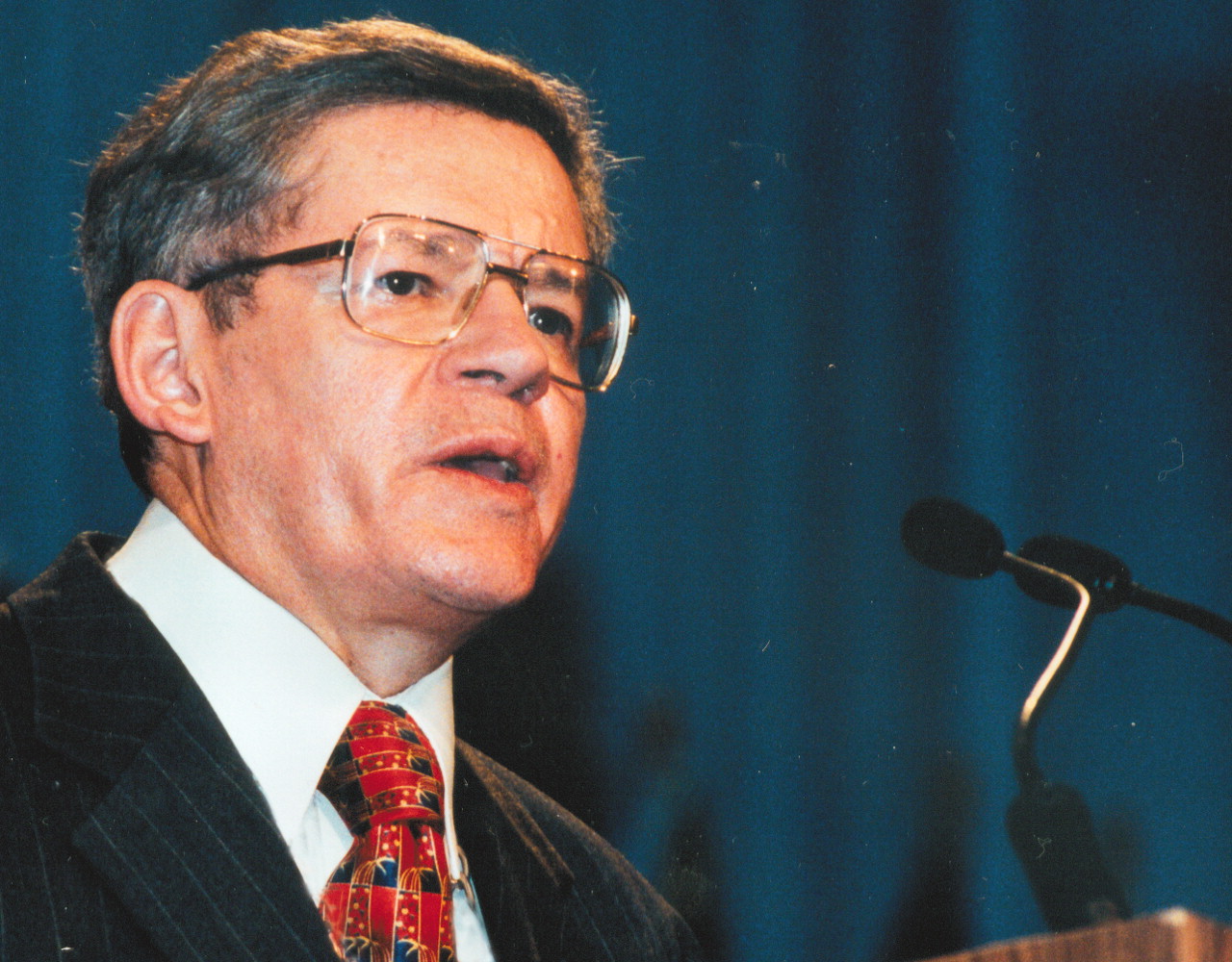WPA, Chinese Psychiatrists Agree On Psychiatry Abuse Charges
The World Psychiatric Association (WPA) and the Chinese Society of Psychiatrists (CSP) came to an agreement in May on a response to allegations from around the world that the Chinese government used the psychiatric establishment to punish members of Falun Gong for their cultural and political beliefs.

Harold Eist, M.D., was one of the WPA negotiators who worked on the agreement concerning Falun Gong abuse charges with the Chinese Society of Psychiatrists.
After meeting in New York in May during APA's annual meeting, WPA President Prof. Ahmed Okasha and CSP President Prof. Donfeng Zhou issued a joint statement saying that the WPA acknowledges that the CSP has cooperated in a three-year investigation of alleged psychiatric abuses of Falun Gong members who were sent to Chinese psychiatric hospitals and clinics.
The CSP's investigation identified “instances in which some Chinese psychiatrists failed to distinguish between spiritual-cultural beliefs and delusions, as a result of which persons were misdiagnosed and mistreated.”
The statement attributed these acts to “lack of training and professional skills of some psychiatrists rather than [to] systematic abuse of psychiatry.”
In addition, the CSP agreed to take steps to “educate [its] members” about the issues that led to misdiagnosis and mistreatment and said it welcomes the WPA's “assistance in correcting this situation” and improving psychiatric diagnosis and treatment throughout the People's Republic of China.
While the agreement is not ideal, said Harold Eist, M.D., it represents“ real progress” in preventing further abuses of psychiatry in China and will lead “to a higher quality of care.”
Eist, a former APA president, was part of a delegation that hammered out this as well as an earlier agreement with the CSP in Beijing and is chair of the WPA's Standing Review Committee, which evaluates complaints aimed at psychiatric associations that are WPA members.
Eist said that the agreement is particularly significant because it is an unprecedented acknowledgment by the Chinese government that human rights abuses occurred in that country.
APA members and others involved in international psychiatry—through the WPA and other groups—began several years ago to hear reports that Falun Gong adherents were, without hearings or trials, being confined in psychiatric hospitals—usually forensic hospitals—and prison labor camps as a result of refusing to renounce their beliefs. These psychiatrists tried to bring this situation to the attention of as many people as possible.
In May 2000 the APA Committee on Abuse of Psychiatry and Psychiatrists urged the WPA to begin an investigation of charges that Chinese psychiatrists were taking part in the mistreatment of Falun Gong members who were not mentally ill. During a 2000 visit to China by then APA president Allan Tasman, M.D., and other APA leaders, the Americans informed their Chinese counterparts about their concerns regarding the allegations of abuse of Falun Gong adherents (Psychiatric News, June 16, 2000).

Rodrigo Muñoz, M.D., is chair of APA's Council on Global Psychiatry. Regarding Chinese psychiatrists, he said, “This may not be the time to turn on them and blame them for actions” by the Chinese government.
In 2001 the Royal College of Psychiatrists voted to urge the WPA to send an investigative team to China and assess the validity of charges of psychiatric mistreatment of Falun Gong members.
The Chinese government had outlawed Falun Gong in July 1999, saying its millions of adherents—by some estimates there as many as 70 million—are part of a subversive religious cult. Its practitioners say that it is a spiritual discipline that tries to improve mind, body, and spirit through meditation, controlled breathing, and physical exercises.
In August 2002, at a meeting in Japan, WPA members passed a resolution to send a team to investigate the charges about psychiatric abuse. A year earlier Britain's Royal College of Psychiatrists took a similar position.
The CSP agreed to cooperate with an investigation of alleged psychiatric abuses involving Falun Gong that was to begin in April. Several days before it was to start, the CSP sent Okasha a letter in which it indicated that it was, at the Chinese government's insistence, postponing indefinitely acting on its earlier agreement to participate in a visit from WPA members, since the visit was to be more investigative than educational.
The Chinese government's reneging on the verification visits is a“ bad decision,” Eist stated, because officials sacrificed an opportunity “to remove a lingering cloud of suspicion that they could have dealt with.”
Arthur Kleinman, M.D., a professor of medical anthropology and psychiatry at Harvard, told Psychiatric News that the charges of psychiatric abuse of Falun Gong members are exaggerated and some of the accounts“ distorted.” Many cases came to light in which Falun Gong adherents appeared to have a diagnosable mental illness, including obvious symptoms of psychosis, “and were put in psychiatric hospitals for good reasons,” he noted.
While Kleinman acknowledged that some instances of abuse of psychiatry no doubt occurred, he did not believe that they were “systematic,” as some some people had charged. “There is a very low level of professionalization regarding forensic and ethical issues” among Chinese psychiatrists, he said, and the low level of clinical and forensic expertise is the “real problem” and at the root of many cases of substandard or unacceptable treatment in Chinese psychiatric hospitals.
“I think the Chinese are quite open to improving” their standard of psychiatric training and care, Kleinman noted. A WPA mission that was more of an “inquisition” than educational outreach“ would have been detrimental to all sides,” he added.
Critic Cites Mild Tone
Abraham Halpern, M.D., is among the U.S. psychiatrists who are distressed about what they contend is the mild tone of the WPA-CPS agreement.
“The WPA's decision to cancel its demand for an investigative mission undercuts and renders meaningless its past high-sounding declarations concerning misuse of psychiatry,” he told Psychiatric News.“ The allegations of psychiatric abuse in China involve mistreatment, torture, and fraudulent diagnoses in the case of large numbers of political dissidents and Falun Gong practitioners and should not be dismissed as mere `failures in accurate diagnosis.'”
Halpern is honorary chair of China Mental Health Watch, which was formed in 2003 to “investigate and bring to light the ongoing persecution of Falun Gong practitioners, with particular focus on the effects of psychiatric abuse....” Halpern is also a professor emeritus of psychiatry at New York Medical College and a former president of the American Academy of Psychiatry and the Law.
Agreement Looks to Future
Darrel Regier, M.D., director of APA's Office of Research and the American Psychiatric Institute for Research and Education, called the agreement between the WPA and CPS an “unprecedented accomplishment” in that an official Chinese organization acknowledged errors in diagnosing and treating Falun Gong practitioners and promised to correct them.”
Regier also stressed that APA considers the May agreement in which the CPS asked for education and advice from the WPA an important opportunity “to enhance the scientific basis of psychiatric practice in China.”
The chair of the APA Council on Global Psychiatry and a former APA president, Rodrigo Muñoz, M.D., told Psychiatric News that he is “delighted” that the WPA and CPS were able to arrive at an agreement on the Falun Gong abuse charges. APA, he said, “has been encouraging the Chinese psychiatric leaders to make sure the Chinese Psychiatric Society is truly independent from the government. They are listening to us. This may not be the time to turn on them and blame them for actions by [the Chinese] government.”
Muñoz rejected the suggestion by some U.S. psychiatrists that the WPA should expel the CPS. “I hope we have left in the past... the tendency to punish rather than talk,” he said. “We would like to be in a position to help those in other countries who share the same values we so much appreciate.” ▪



